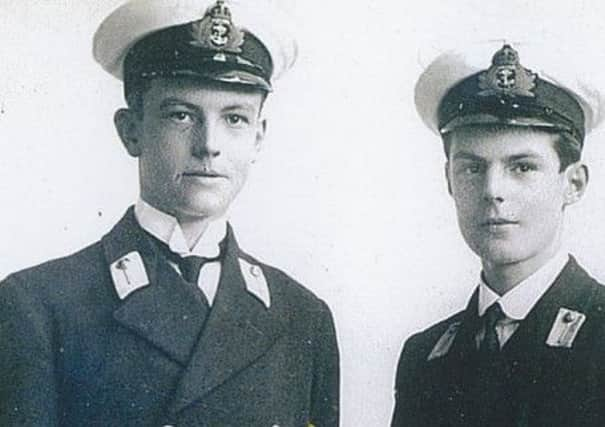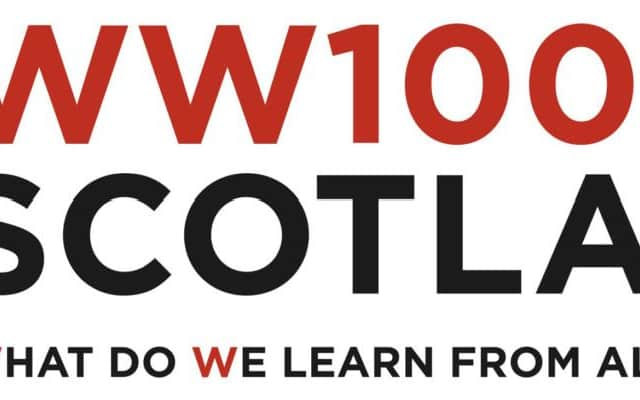Story of two Edinburgh brothers who fought at Jutland..only one came home


Over 8,000 men died in the 36-hour conflict, 6,000 of whom were British..and my uncle was one of them.
An adored younger son, Archie was aged just 16 when he died. Bertie, his elder brother - and my father - was a survivor.
Advertisement
Hide AdAdvertisement
Hide AdBoth had been pupils at Edinburgh Academy, the sons of William and Kathleen Dickson. William was a distinguished advocate, historian and biographer and was librarian of the National Library of Scotland from 1925 to 1931.


My father would go on to have over a 40-year Naval career and safely rise through the ranks to become an Admiral.
Tragically, we can only wonder what young Archie might have achieved.
My grandfather’s words after the bloody Battle of Jutland summarise the stark reality our bereaved family faced. “Nothing will bring him back. Archie and his splendid ship, of which they were all so proud, now lie at the bottom of the sea.”
Advertisement
Hide AdAdvertisement
Hide AdWhen the action took place off the coast of Denmark at Jutland Bank, Dad was 18 and serving aboard battleship HMS Benbow, based at Scapa Flow with Commander of the Fleet, Admiral Jellicoe. Further south, at the subsidiary port of Rosyth, Archie, served aboard the battle-cruiser Queen Mary with Vice-Admiral Beatty.


Dad had been the first in the family to know that the Queen Mary was missing from the battle line.
In his written account of the battle, he describes how he had been on duty after peering through his periscope on Benbow, he looked in vain for the Queen Mary as the fleet passed by in line. Nightmarish uncertainty ensued.
Two days later his parents received the customary and dreaded telegram from the Admiralty.
Advertisement
Hide AdAdvertisement
Hide AdMy grandmother was resolute in her attempts to ferret-out the facts, corresponding with families who lived as far distant as Sweden. There are accounts received by survivors and from the wounded, for instance, from Humphrey Durrant. She took roses she had been given to Midshipman Durrant’s bedside at Hopetoun Hospital near the Forth Bridge where he lay dying after being severely wounded.
Granny Dickson writes so sadly of him, how she wished the 18 year old she had been to see had in fact been Archie, alive, but wounded.
My grandparents and father rarely spoke of what happened within our family during the first World War. It was only when I discovered my grandparents’ housekeeper, in her 90s and living in Scotland I found out about a tradition of wreaths. Immediately, I rang her, I drove non-stop to her East Lothian bungalow and there it seemed we talked for days.
It was Jean who told me how every 31 May my grandparents would trek from home over the Forth Bridge to drop a wreath from Rosyth harbour steps at the hour they believed Archie’s ship had been sunk.
Advertisement
Hide AdAdvertisement
Hide AdI know it is by rituals and habits such as these alongside the forging of friendships with families experiencing the same that we stop ourselves from going bonkers. Clearly my grandmother thought this some solace for her wreath tradition was sustained for over 40 years.
She eventually lost her sight and went to live in a care home but on each ten year passing date, friends arranged fresh cut flowers around the framed portrait of Archie above a particular consul table she chose to take with her to the home. The same mahogany table is now in my cottage and will have the same flowers – sweet peas, roses, lilies in the same vases as then, at the end of May to commemorate that long ago passing of Uncle Archie.
On this 31 May, I will retrace the steps of my grandmother to Rosyth. There I will find somewhere at the huge, present day, dockyard, some steps down to the water and as my tribute to Archie’s short life, will drop my homemade wreath of laurels from the gardens near our old home, with rosemary too, and tied in with Naval blue and gold ribbon, blue forget-me-nots.
Now I am 80 and grown old, I will say to they who never grew old – we will remember them.
Yes, Archie who died then, and Durrant from wounds soon after, and to all who sailed with them: ‘We will remember them.’